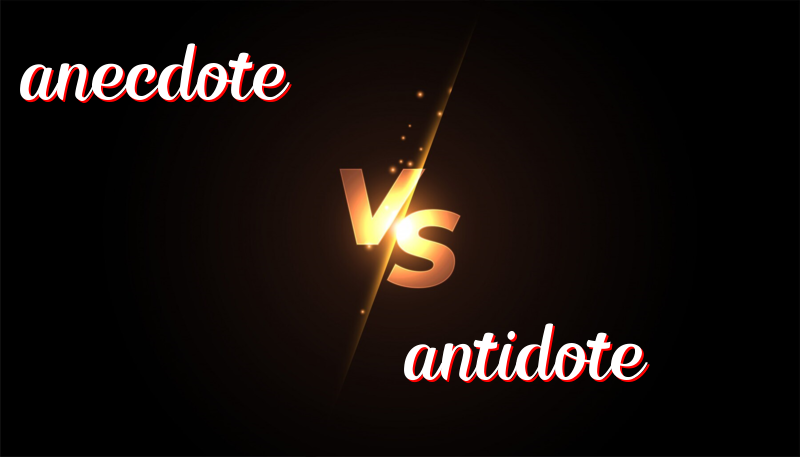英語單詞anecdote 與 antidote的區別
September 27, 2024
區分 “anecdote” 和 “antidote” 的詳細解釋
單詞的歷史
“Anecdote” 這個詞來自希臘語的 “anekdota”,意思是「未發表的故事或佚事」。它指的是一個短小、有趣或引人入勝的故事,通常是真實事件,旨在娛樂或啟發聽眾。
“Antidote” 則來自拉丁語的 “antidotum”,源自希臘語的 “antidoton”,意為「解毒劑」。它指的是一種能中和毒素或對抗病症的藥物,用於治療或防止中毒。
如何使用這些單詞
Anecdote 的使用
“Anecdote” 用於描述一個有趣或引人入勝的短故事,這些故事通常具有教訓或啟發意義。
例句:
- He told an anecdote about his adventures in Africa.
他講了一個關於他在非洲探險的故事。 - Her speech was filled with humorous anecdotes.
她的演講充滿了幽默的故事。 - This book is a collection of interesting anecdotes from history.
這本書收集了歷史上有趣的故事。 - She shared an anecdote to illustrate her point.
她分享了一個小故事來說明她的觀點。 - He used an anecdote to break the ice at the meeting.
他用一個小故事來打破會議的冷場。
Antidote 的使用
“Antidote” 用於描述一種中和毒素或治療病症的藥物或方法。
例句:
- The doctor administered an antidote to counteract the poison.
醫生注射了一種藥物來對抗毒藥。 - This medicine is considered an effective antidote for snake bites.
這種藥物被認為是治療蛇咬的有效解毒劑。 - Laughter is the best antidote to stress.
笑是減壓的最佳解藥。 - There is no known antidote for this toxin.
目前沒有已知的這種毒素的解藥。 - The scientist developed a new antidote for the deadly virus.
科學家研發了一種治療致命病毒的新解藥。
記住區別的小技巧
記住 “anecdote” 和 “antidote” 之間差異的一個好方法是把 “anecdote” 與「快樂和啟發」聯繫起來,因為它通常是一個有趣的故事。而 “antidote” 則與「醫學和治療」聯繫起來,因為它是一種解毒劑或藥物。
總結
“Anecdote” 是一個有趣或引人入勝的短故事,通常具有教育或娛樂意圖。而 “antidote” 是用來治療或中和毒素的藥物。通過聯繫這兩個詞的用途和語源,你可以更容易地區分它們。

Leave a Reply
You must be logged in to post a comment.